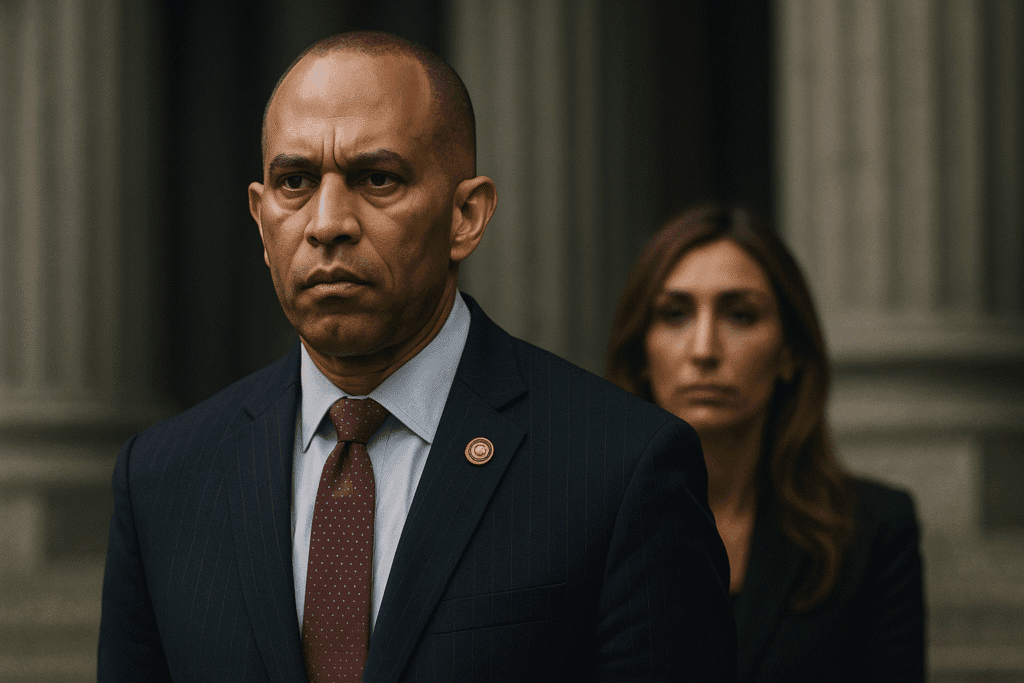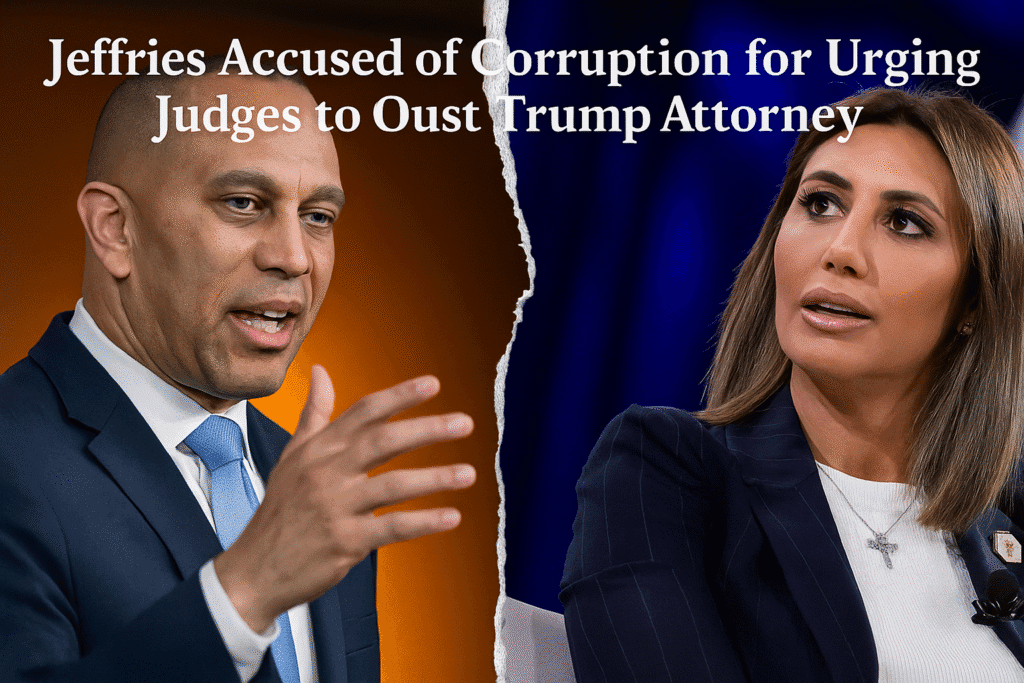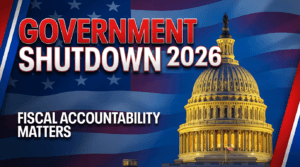Jeffries Accused of Corruption for Urging Judges to Oust Trump Attorney


A formal ethics complaint has been filed against House Minority Leader Hakeem Jeffries (D-NY) after allegations surfaced that he privately pressured judges to remove attorney Alina Habba from a high-profile legal case. Critics are calling the move “clear corruption,” raising concerns about the separation of powers and the politicization of the judiciary.
The Allegations
According to reports, Jeffries communicated with several federal judges in an attempt to influence their decisions regarding Habba, a prominent attorney known for representing high-profile clients, including former President Donald Trump. The complaint, filed by a government watchdog group, accuses Jeffries of trying to interfere with judicial independence by advocating for Habba’s removal.
Why It Matters
The complaint alleges that Jeffries’ actions constitute an abuse of power and a violation of ethical standards expected of members of Congress. Legal experts note that while lawmakers often voice opinions on judicial matters, direct interference or attempts to sway judges in ongoing cases are strictly prohibited.
“Elected officials have a duty to respect the independence of the judiciary,” said legal scholar Martha Gill. “Any attempt to pressure judges behind the scenes undermines public trust in the legal system and could be seen as clear corruption.”

Reactions
Republican lawmakers swiftly condemned Jeffries, calling for a thorough investigation. “This is a blatant case of political interference,” said Rep. Jim Jordan (R-OH). “The American people deserve to know if their elected officials are using back channels to influence the courts.”
Supporters of Jeffries, however, argue that the complaint is politically motivated and lacks substantive evidence. A spokesperson for Jeffries said, “Leader Jeffries has always respected the rule of law and the independence of our judicial system. Any suggestion otherwise is baseless.”
Broader Implications
This incident adds to the ongoing debate over the relationship between the legislative and judicial branches. If the complaint is upheld, it could lead to disciplinary action against Jeffries and set a precedent for how Congress members interact with the courts.
Political analysts warn that such controversies further erode confidence in public institutions. “When the perception of corruption takes hold, it damages the credibility of both Congress and the courts,” said analyst Rachel Thomas.
What’s Next?
The ethics complaint will be reviewed by the Office of Congressional Ethics, which can recommend further action, including a formal investigation or referral to the House Ethics Committee. Meanwhile, Alina Habba continues to represent her clients, and the courts have yet to respond publicly to the alleged pressure campaign.
Conclusion
The complaint against Hakeem Jeffries raises serious questions about the boundaries of political influence and the independence of the judiciary. As the review process unfolds, lawmakers and the public alike will be watching closely to see how Congress addresses allegations of “clear corruption” within its own ranks.











